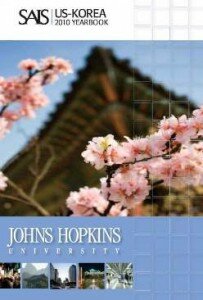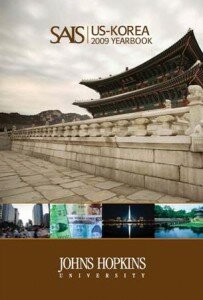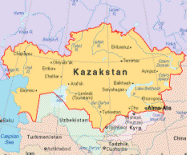Published on April 10, 2014
The US-Korea Institute at SAIS is currently seeking program and research interns. Multiple positions are open and duties will vary. Some current areas of research include: North Korea political, economic, and social development, North Korean WMD issues, US-ROK nuclear cooperation, US-ROK cooperation in Southeast Asia, US-ROK cooperation nuclear security, US foreign policy to both Koreas, energy security cooperation in Northeast Asia, ROK renewable energy policies, and more.
Interns generally are asked to do a variety of tasks including research assistance, event attendance and reporting, logistical support for events and projects, and other things as necessary. They may work with USKI staff and/or Visiting Scholars on various projects.
Successful candidates should have an interest in Korea and/or East Asia policy and be at least a sophomore in college or higher; graduate students and post-grads are encouraged to apply. Foreign language skills are a plus, but not necessary. Strong writing and editing skillls are preferred. Must be able to multitask, prioitize, meet deadlines, and work well both independently and in small groups.
USKI internships are unpaid and interns are expected to work at least 4 days a week.
To apply, please email cover letter, resume and short writing sample to Jenny Town, Assistant Director at jtown2@jhu.edu. Only those chosen for interview will be contacted. No phone calls please.
Published on May 7, 2011
 The U.S.-Korea Institute at SAIS is pleased to announce the release of the 2010 Edition of the SAIS U.S.-Korea Yearbook.
The U.S.-Korea Institute at SAIS is pleased to announce the release of the 2010 Edition of the SAIS U.S.-Korea Yearbook.
The Yearbook analyzes important developments in North and South Korea that characterized their relations in 2010. Each paper was written by a SAIS student from the course, “The Two Koreas: Contemporary Research and Record,” in the fall of 2010. Their insights were based on extensive reading and study as well as on numerous interviews conducted with government officials, scholars, NGO workers, academics and private sector experts both in Washington and Seoul.
Explore the 2010 SAIS U.S.-Korea Yearbook.
Published on May 7, 2010
 The U.S.-Korea Institute at SAIS annouces the release of the fourth edition of the SAIS U.S. -Korea Yearbook.
The U.S.-Korea Institute at SAIS annouces the release of the fourth edition of the SAIS U.S. -Korea Yearbook.
Each fall semester at SAIS, the Korea Studies Program offers the course, “The Two Koreas: Contemporary Research and Record,” where students prepare an in-depth report on an issue of importance to Korean affairs in that year. As part of their research, students make a one-week research trip to Seoul to test their ideas with experts and officials. The SAIS U.S.-Korea Yearbook is a compilation of these student papers.
Student authors include: Tze Chin “Alvin” Wong, Paul Elliott, Sogaku Miyamoto, Ian Howard, Kee Hoon Chung, Jason Park, Momoko Sato, Neil K. Shenai, Nick Borst, Naoko Aoki, Zander Lanfried, and Sarah Yun.
Download the 2009 SAIS U.S.-Korea Yearbook.
Published on January 19, 2010
 As 97 percent of South Korean energy comes from imports, Central Asia is a very important area for developing and securing foreign energy resources. Among the countries in Central Asia, Kazakhstan has shown the highest tangible economic development results. Moreover, Kazakhstan, compared to other Central Asian countries, has the richest natural resources, a superior economy size, and a relatively stable political situation that could increase the speed of political modernization. Kazakhstan is also leading the region in terms of market reforms. read more …
As 97 percent of South Korean energy comes from imports, Central Asia is a very important area for developing and securing foreign energy resources. Among the countries in Central Asia, Kazakhstan has shown the highest tangible economic development results. Moreover, Kazakhstan, compared to other Central Asian countries, has the richest natural resources, a superior economy size, and a relatively stable political situation that could increase the speed of political modernization. Kazakhstan is also leading the region in terms of market reforms. read more …



 As 97 percent of South Korean energy comes from imports, Central Asia is a very important area for developing and securing foreign energy resources. Among the countries in Central Asia, Kazakhstan has shown the highest tangible economic development results. Moreover, Kazakhstan, compared to other Central Asian countries, has the richest natural resources, a superior economy size, and a relatively stable political situation that could increase the speed of political modernization. Kazakhstan is also leading the region in terms of market reforms.
As 97 percent of South Korean energy comes from imports, Central Asia is a very important area for developing and securing foreign energy resources. Among the countries in Central Asia, Kazakhstan has shown the highest tangible economic development results. Moreover, Kazakhstan, compared to other Central Asian countries, has the richest natural resources, a superior economy size, and a relatively stable political situation that could increase the speed of political modernization. Kazakhstan is also leading the region in terms of market reforms. 